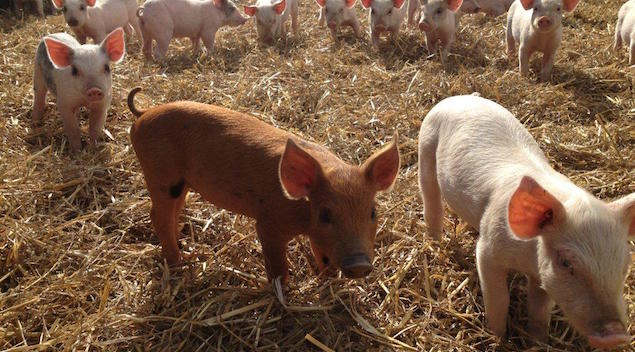I would like the start my first comment for Pig World by saying a thank-you to all of you from the sector who have made me feel very welcome at the National Pig Association (NPA).
I have been able to meet a number of members already and will look forward to meeting many more of you over the coming months. 
For me, personally, it was not a difficult decision to join the NPA. I have always known it as an organisation that seems to be in among the key policymakers, articulating the sector’s concerns across all audiences.
Having been in the role for only a short period of time, it is evident that there are many concerns for our sector that require an ever-growing presence from the NPA.
It is already very clear it is uniquely exposed to the potential consequences of Brexit, compared to other sectors or industries.
I have already represented the NPA on a number of Brexit-related stakeholder groups across Government, and while we will clearly need to work together as an industry, we at the NPA will have to ensure that the unique challenges faced by our sector are made loud and clear to our policymakers.
It is already very clear that our sector is uniquely exposed too the potential consequences of Brexit, compared to other sectors or industries
As our discussions with Defra and the Departments for International Trade and Exiting the EU progress, we will be able to gather what kind of Brexit approach, including any trade deals, are envisaged. The two main parties in Westminster have committed themselves to withdrawing from the Single Market and Customs Union, which leaves either a separate free trade agreement to be negotiated with the EU, or a simple reversion to rules and tariffs set out under the World Trade Organisation (WTO). Under the latter, while the price of imported pig products would increase sharply, so too would any exports – rendering future cull sow exports almost impossible at a tariff rate of 45p/kg.
We will also have to ensure that our demands for a post-Brexit agricultural policy align with WTO rules. As you can imagine, the rules and process that surround the WTO are extremely laborious and technical. This means that certain types of restrictions can be made on imported products, but they usually have to be scientifically justifiable.
The great concern for the NPA is that our Government will choose to increase regulation for our sector, but be unable to make similar conditions upon imported products.
As a general rule, restrictions can be made on human or animal health, but not on welfare – however, certain ‘technical’ barriers can be applied such as labelling, nutritional claims and welfare, in certain cases.
The WTO has often established its rules via test cases, with an overarching principle for individual countries to make rules ‘no more restrictive than necessary’.
Whatever happens, our Government and your NPA will have a vital role to play in turning these challenges into opportunities.




